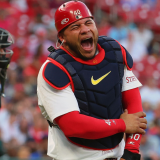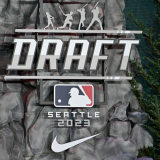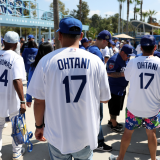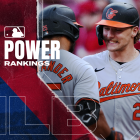Major League Baseball's pact with Minor League Baseball expires at the end of the 2020 season. Negotiations for a new agreement have been ongoing -- and reportedly include some radical suggestions that would alter the sport's development system in major ways.
According to J.J. Cooper of Baseball America, MLB has put forth the idea of reducing the number of minor-league teams by more than a quarter (42 teams would be cut in the reported proposal). Additionally, MLB's proposal would reduce the draft to 20 rounds, reduce the number of contracted players in each organization, and alter the structure -- with some affiliates moving up or down in level.
Here's more from Cooper's piece:
At the core of the negotiations, MLB is looking to dramatically improve Minor League Baseball's stadium facilities as well as take control over how the minor leagues are organized as far as affiliations and the geography of leagues. Those areas have been under the control of MiLB for the past 100-plus years and would lead to a dramatic restructuring of how MiLB is governed and operates.
Another part of MLB's proposal is improved pay for minor-league players. The exploitation of minor-league talent has become a widely discussed topic in recent years, with MLB even facing litigation on the matter. Don't be fooled here though -- the catch is that MLB wants to greatly reduce the number of players employed, all the while raising the remaining players' salaries by something like 50 percent -- an amount that sounds more impressive than it is, considering the savings from the lost opportunities.
You might wonder how eliminating so many affiliates would impact the baseball's popularity and growth potential -- after all, baseball is often referred to as a regional sport, and eliminating a quarter of the teams would seem to burn certain regions. Cooper notes that there's talk about establishing a so-called "Dream League," wherein eliminated affiliates would field teams of undrafted free agents, serving as a not-so independent league of sorts. The financial aspects of the Dream League are mostly unclear at this point.
Predictably, there's a lot to unpack about the Dream League and nearly every aspect of the proposal -- and you should read Cooper's piece in whole to learn about all the specifics -- and it's worth remembering how negotiations work. But, if MLB gets its way, it seems like the minor leagues will be reshaped in the coming years -- and perhaps not in a good way.






















